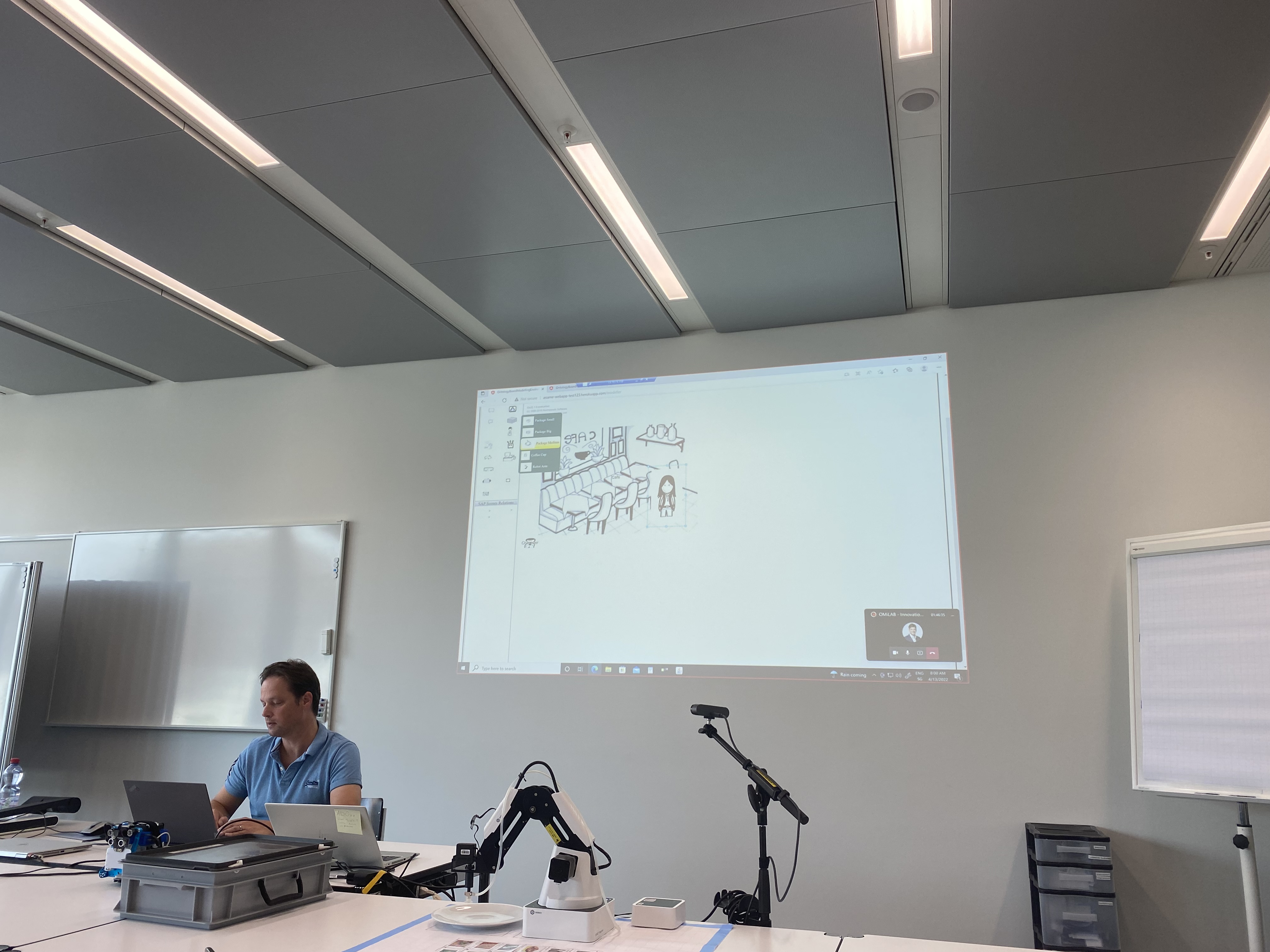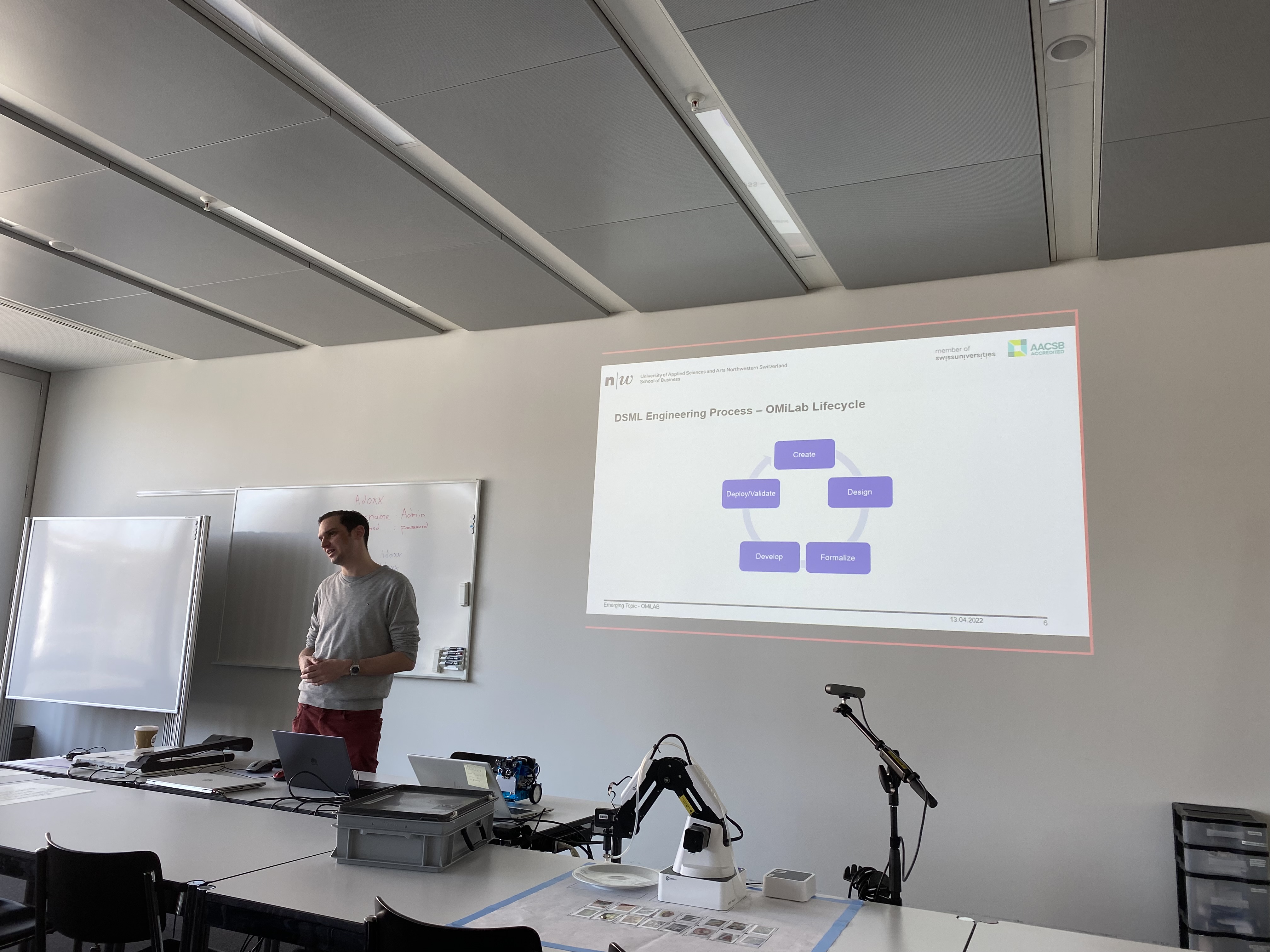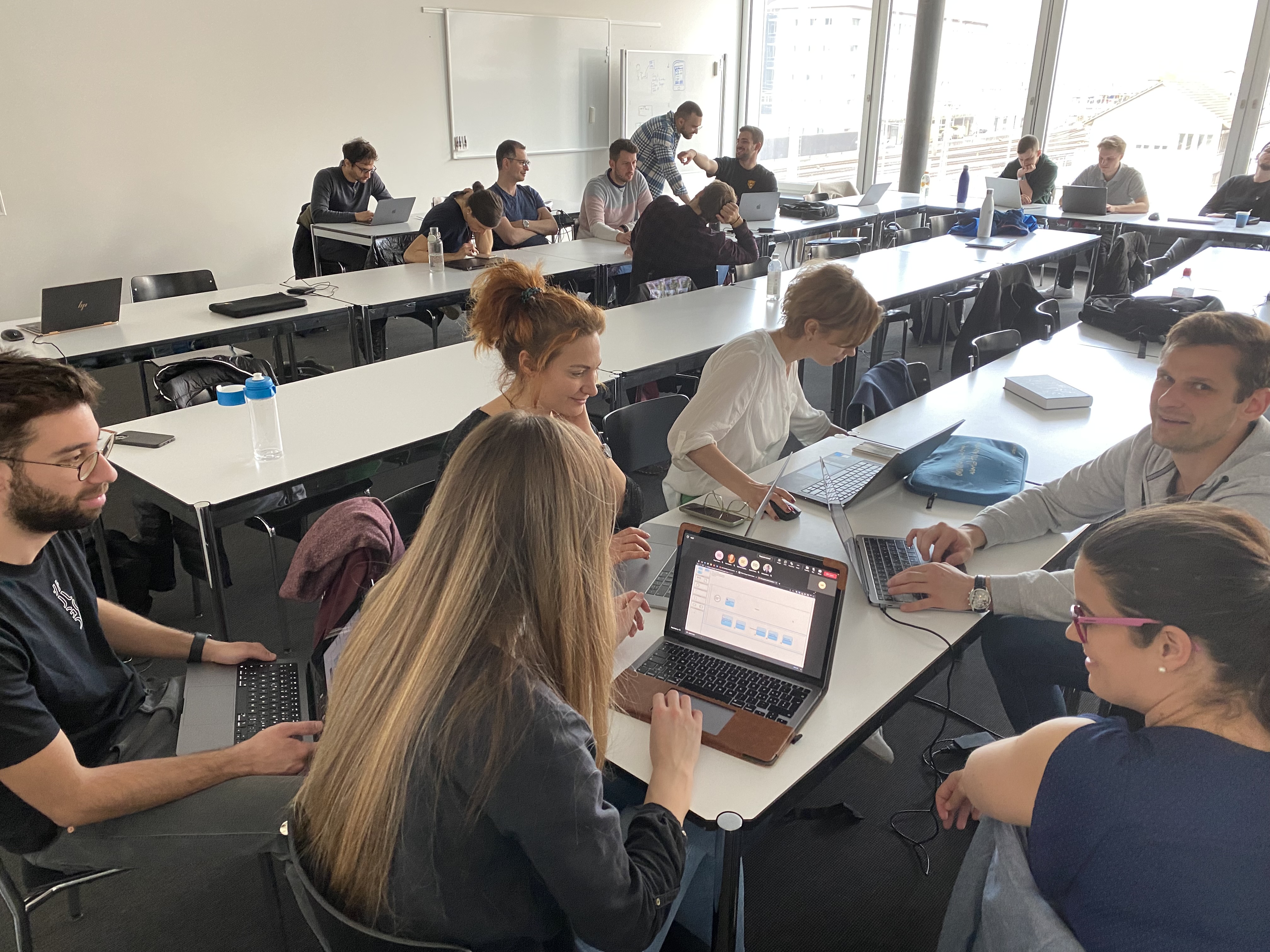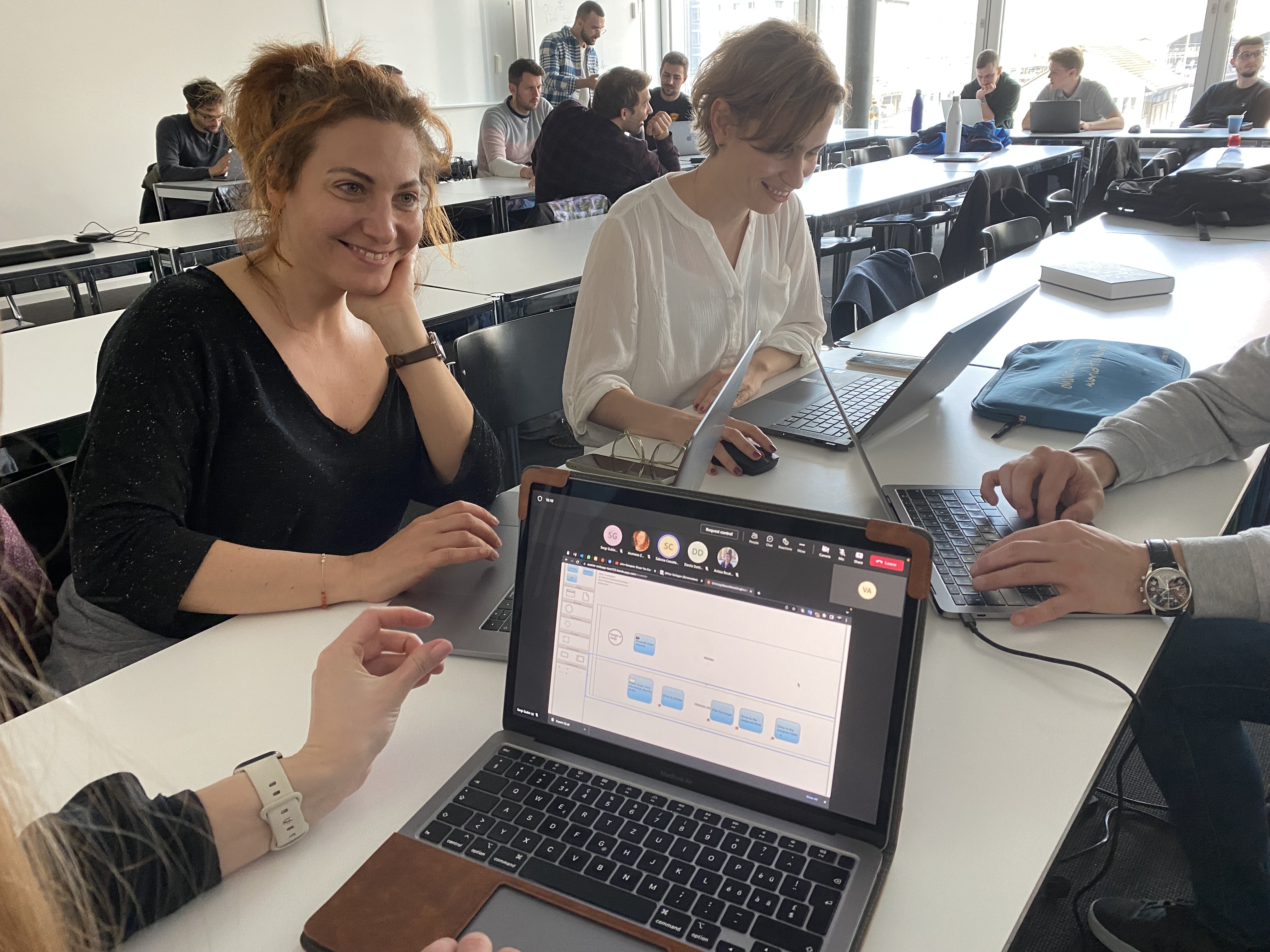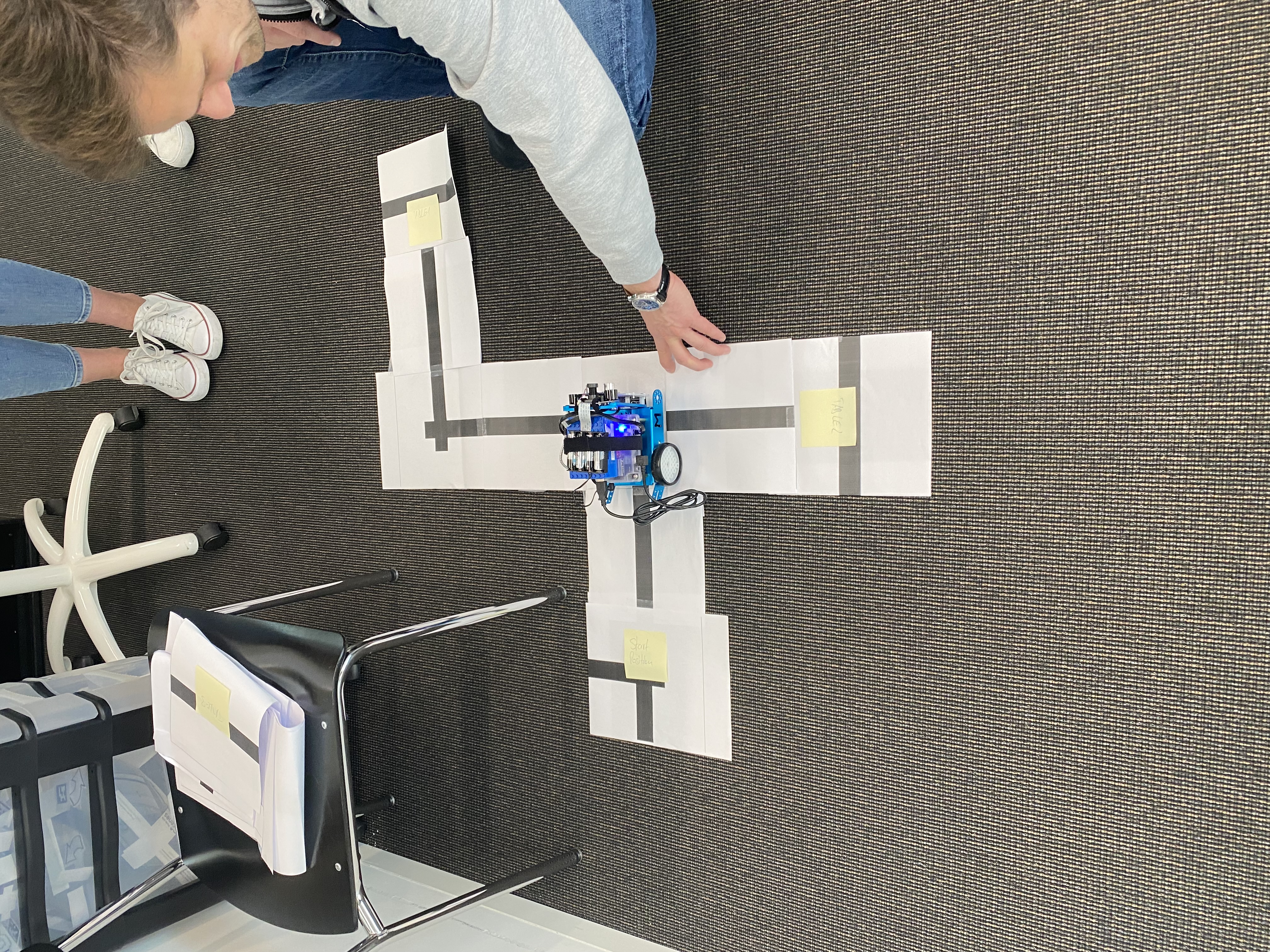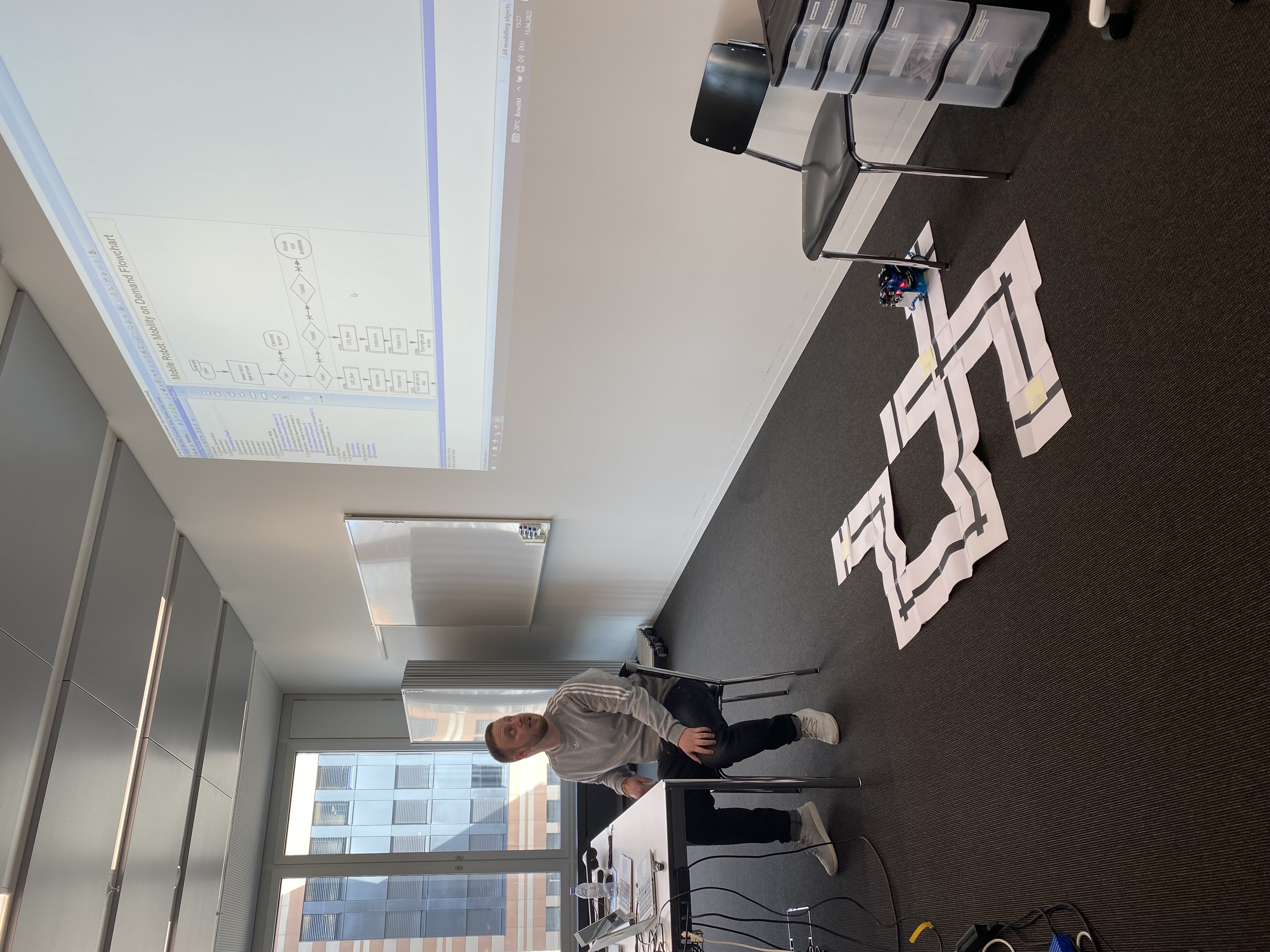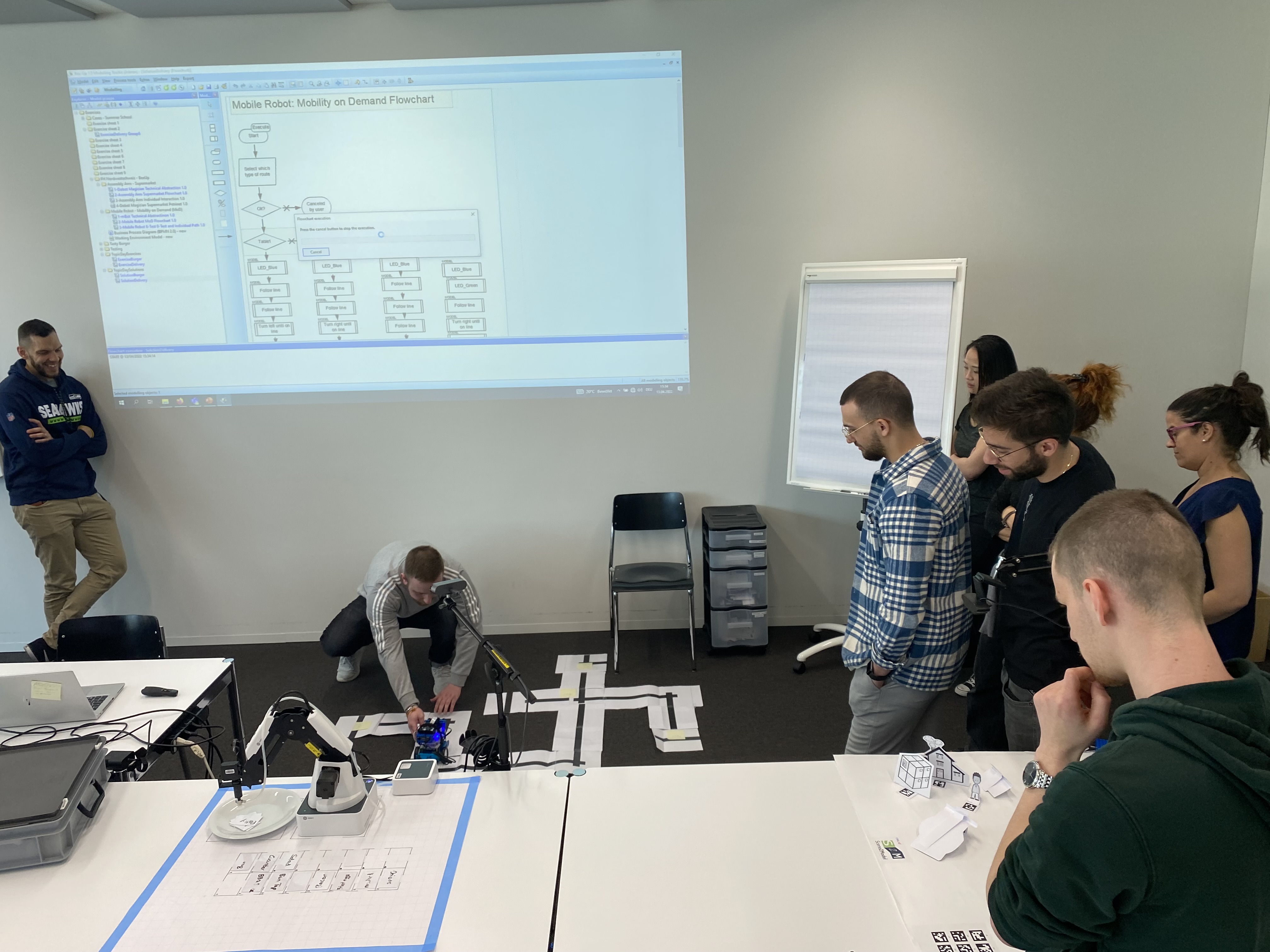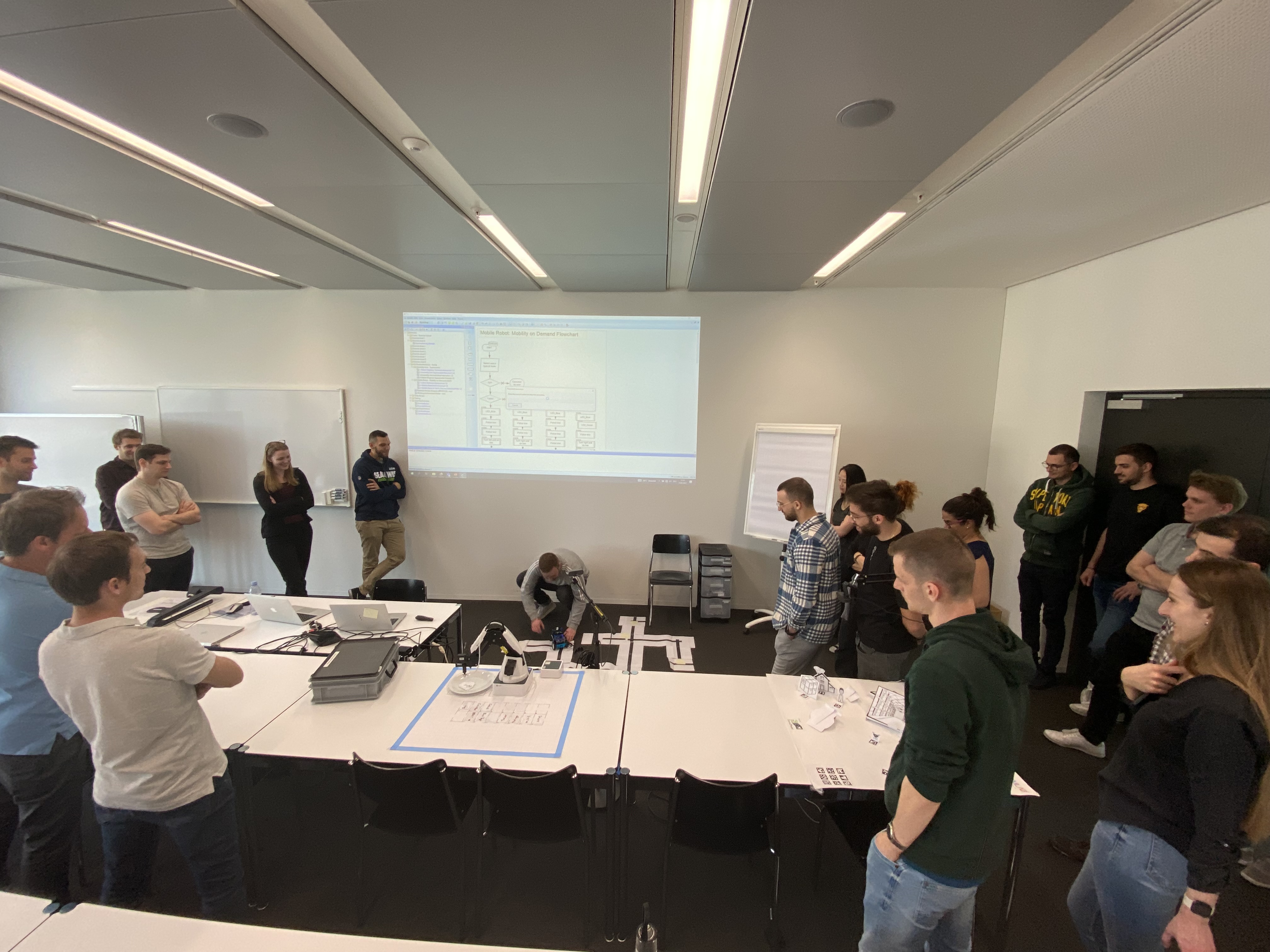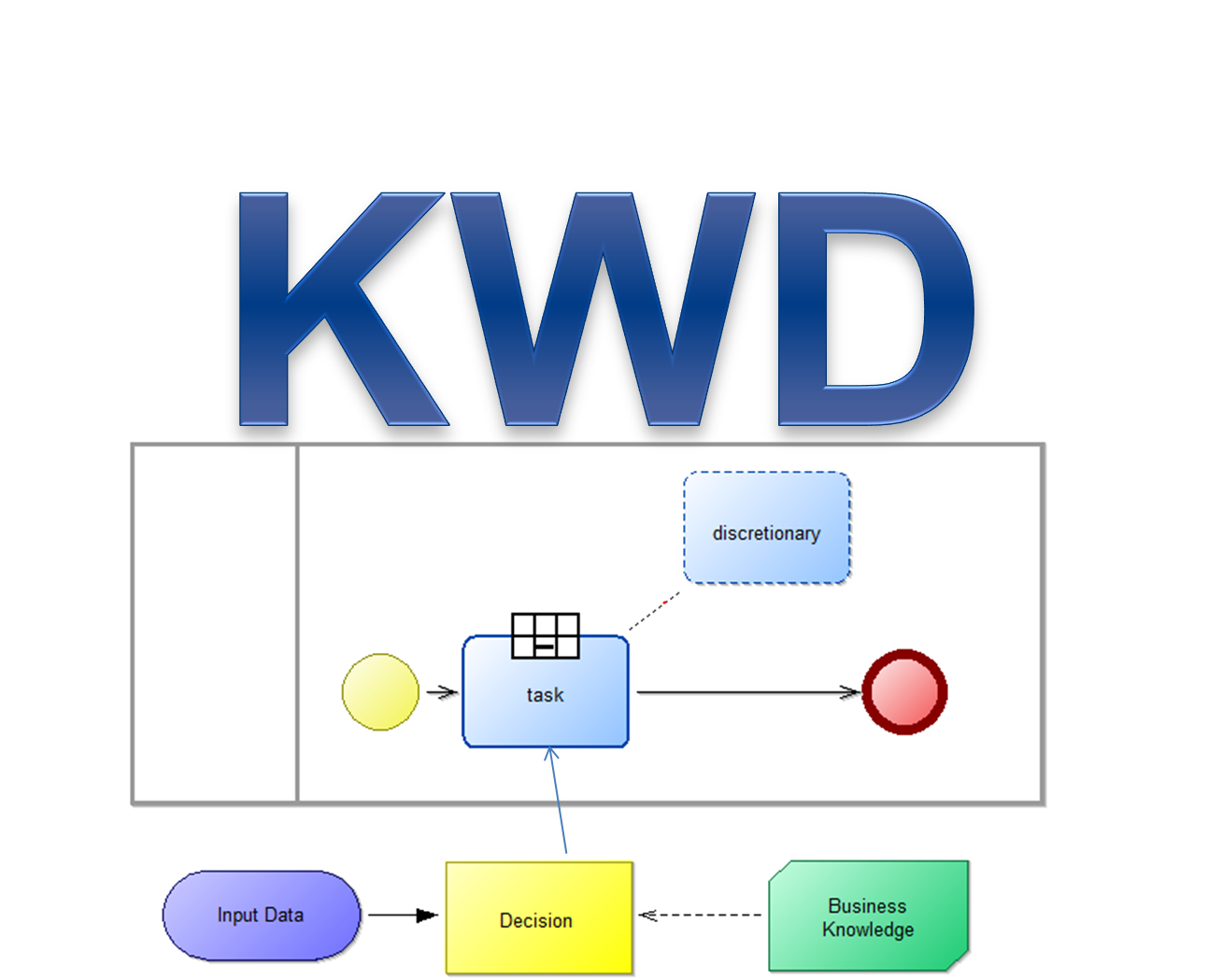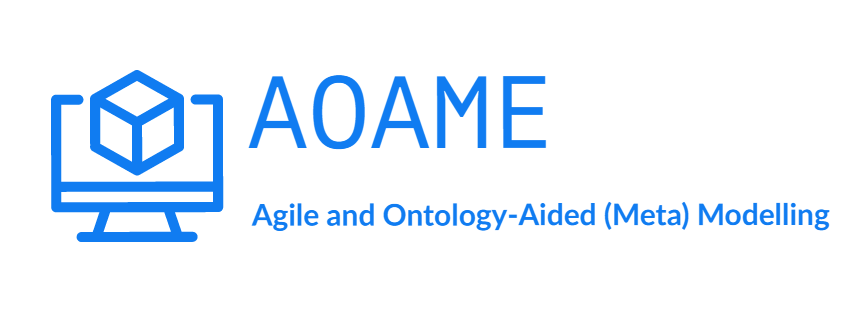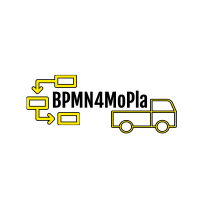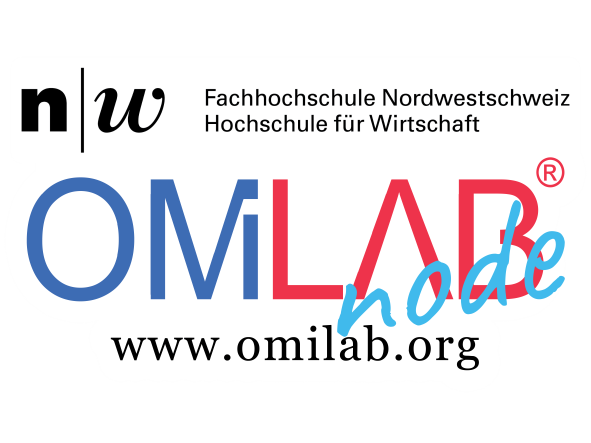
OMILAB@University of Applied Sciences and Arts Northwestern Switzerland
"Creation of ontology-based cyber-physical systems."
The OMiLAB@FHNW promotes the model-driven approach for the creation of ontology-based cyber-physical systems.

About the OMILAB Node
The OMiLAB@FHNW promotes the model-driven approach for the creation of ontology-based cyber-physical systems. For this, all the three layers Design Thinking, Conceptual Modelling and Physical Infrastructure provided by OMiLAB are exploited and supplemented with the agile and ontology-aided metamodeling approach.
Competences
- Enterprise Modelling
- ontology-based metamodeling
- Artificial Intelligence
About the Hosting Organisation
FHNW fulfils a fourfold mandate – degree programs, continuing education, applied research and development, and services to third parties – both innovative and practice-oriented. Its wide range of study programmes, its proximity to practice, its application-oriented and innovative research and its global network make the FHNW an attractive and diverse educational institution and a sought-after for enterprises in Northwestern Switzerland.
The AACBS-accredited School of Business educates innovative and responsible managers for a networked and dynamic world. It runs five Bachelor of Science and two Master of Science programmes, has six institutes, an international office and two offices for the Asia region. It has a strong international network fostering exchange programs with 200 universities across the globe.
The OMiLAB@FHNW is closely linked to the MSc in Business Information Systems and the Intelligent Information Systems Competence Center, which has a focus on combining enterprise modelling and Artificial Intelligence.
The AACBS-accredited School of Business educates innovative and responsible managers for a networked and dynamic world. It runs five Bachelor of Science and two Master of Science programmes, has six institutes, an international office and two offices for the Asia region. It has a strong international network fostering exchange programs with 200 universities across the globe.
The OMiLAB@FHNW is closely linked to the MSc in Business Information Systems and the Intelligent Information Systems Competence Center, which has a focus on combining enterprise modelling and Artificial Intelligence.
Results
Get an overview what this OMiLAB has accomplised! Selected results are presented below as a contribution to the global community:
All further results of the OMiLAB Node are via the organizer.
Activities
The following, selected activities are organized by the OMiLAB.
Emerging Topics in Business Information Systems
In the module “Emerging Topics in Business Information Systems”, the students learn about six different innovation topics in six days. One of these is the OMiLAB topic, where students learn about the model-driven approach to create innovative cyber-physical systems. Each topic is dealt with a topic team, which typically consists of up to six students each of which has a research question to address. The students also take the role of teachers in this module. As such they are requested to present about the concepts that revolve around their research question as well as they have to prepare a workshop with the remaining students to collect primary data for their research paper. Each topic day has at least one lecturer having expertise on the given topic. The lecturer is in charge of creating the research questions, gives input about the workshop and supervises the research paper. The students that focused on the OMiLAB topic, were provided with research questions that address the three workspaces: Design Thinking, Conceptual Modeling (incl. Domain-Specific Modelling) and the Robots. One research paper from this module was published in the 10th International Conference on Model-Driven Engineering and Software Development (2022).
Research Methods for Information Systems
In the module “Research Methods for Information Systems” of the Master of Science in Business Information Systems, the students regularly work on projects for developing metamodels for different application domains. One project was about metamodeling a domain, where a robot can select items based on preference models. Examples were the collection of food items dependent on food preferences and allergies of a customer. Another example was the suggestion for clothing depending on the occasion and style of dress. The second project was about Visualization of arguments for decision making for wicked problems. While business motivation modelling allows for tracing back the reasons for goals, strategies or business rules argumentation modelling allows for visualizing arguments and counter arguments and the positions that support an argument, in particular if different alternatives would be possible.
Metamodelling for the Interested Public
OMiLAB@FHNW was one of the innovative showcases that was made accessible to an interesting public in July 2021 in Basel. Originally intended as a practical test for the House of Switzerland at the Olympic Games in Tokyo, in the end it was a local event under the motto “Basel is changing your life”. The OMiLAB@FHNW was presenting the design thinking approach with Scene2model and the development of cyber-physical systems also at the Digital Days Switzerland 2021 and the Digital Festival 2022 in Olten.
Modeling and Prototyping Enterprise Solutions
MSc Business Information Systems is going to offer an intensive teaching project about “Modeling and Prototyping Enterprise Solutions” with University of Pretoria (UP) and Cape Peninsula University of Technology (CPUT) in Cape Town, South Africa. There shall be 8 students each of the three partner universities. The first implementation is planned for January 2023. The teaching is based on the three layers of OMiLAB. In the first week the topic will be Enterprise Metamodelling taught in Pretoria. In the second week design thinking is going to be taught at CPUT and finally a prototype will be developed in the third week in the OMiLAB node at FHNW: As a teaching scenario, we developed a tasty burger case by extending the library of the modelling tool BeeUp. The new library allows the creation of graphical models that reflects, on the one hand, burgers and on the other hand the Digital Twin of the DoboMagician. Both model kinds can be executed on the DoboMagician. An ontology that reflects the meta-model and models was created for the automation of the business logic, e.g., if the customer’s meal preference is vegetarian, only burgers that contain vegetarian ingredients shall be recommended.
Resources
The following cyber-physical resources are available at the OMILAB node:
Dobot Magician
mBot
Scene2Model
Publications
Relevant publications of the OMILAB node:

